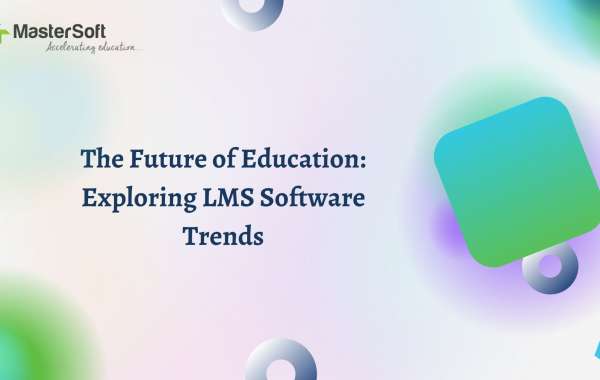The landscape of education is undergoing a significant transformation, with the integration of technology playing a central role. Learning Management System (LMS) software is at the forefront of this evolution, offering innovative solutions to meet the changing needs of learners and educators alike. In this comprehensive guide, we will explore the future of education and delve into the latest trends in LMS software that are shaping the way we learn and teach.
The Changing Landscape of Education
Traditional Education vs. Modern Learning:
In the past, education was primarily confined to traditional classrooms, with face-to-face interactions between students and instructors. However, the advent of technology has revolutionized the way we learn. Modern learning environments are characterized by virtual classrooms, online courses, and digital resources. This shift towards technology-driven education has made learning more accessible, flexible, and personalized than ever before.
The Rise of E-Learning:
E-Learning has emerged as a prominent trend in education, with an increasing number of learners opting for online courses and programs. E-Learning offers several advantages, including flexibility, convenience, and cost-effectiveness. As a result, more educational institutions and organizations are adopting Learning Management System (LMS) software to deliver and manage their e-learning initiatives.
The Future of Education with LMS Software
1. Personalized Learning Experiences:
Personalized learning experiences are the future of education. LMS software will continue to evolve, leveraging data-driven insights and analytics to create tailored learning paths for each learner. By analyzing learner behavior, preferences, and performance, LMS software can deliver customized content, assignments, and assessments, empowering learners to progress at their own pace and achieve their learning goals more effectively.
2. Adaptive Learning:
Adaptive learning is another key trend in the future of education. LMS software will incorporate adaptive learning algorithms that dynamically adjust the presentation of content based on the learner's responses. By adapting to each learner's strengths, weaknesses, and learning style, adaptive learning maximizes learning efficiency and effectiveness, resulting in better retention and comprehension.
3. Artificial Intelligence (AI) and Machine Learning (ML):
Artificial Intelligence (AI) and Machine Learning (ML) will play an increasingly important role in the future of LMS software. AI-powered LMS platforms will be able to provide adaptive learning experiences, dynamically adjusting content and activities based on learner preferences and performance. AI and ML will also enhance the assessment process, providing more accurate and timely feedback to learners.
4. Virtual Reality (VR) and Augmented Reality (AR):
Virtual Reality (VR) and Augmented Reality (AR) are poised to revolutionize the learning experience. LMS software will integrate VR and AR technologies, allowing learners to immerse themselves in interactive learning environments. VR and AR simulations will provide learners with hands-on training experiences, making learning more engaging and effective.
5. Microlearning:
Microlearning is a learning strategy that delivers content in small, bite-sized chunks, making it easier for learners to digest and retain information. LMS software will continue to support microlearning by breaking down content into short modules or lessons that can be consumed quickly and conveniently. Microlearning is particularly effective for on-the-go learning and just-in-time training, providing learners with the flexibility to access learning resources whenever and wherever they need them.
6. Social Learning:
Social learning is another key trend in the future of LMS software. Modern LMS platforms will incorporate social learning features such as discussion forums, chat rooms, and social media integration. Social learning fosters collaboration, knowledge sharing, and community building, enriching the overall learning experience. By leveraging social learning, organizations can create a more engaging and interactive learning environment.
7. Gamification:
Gamification uses game design elements such as points, badges, and leaderboards to make learning more enjoyable and interactive. LMS software will continue to incorporate gamification elements to enhance engagement and motivation. By turning learning into a game, gamification encourages healthy competition, boosts motivation, and rewards learners for their achievements.
The Benefits of LMS Software Trends
1. Improved Learning Outcomes:
By incorporating personalized learning experiences, adaptive learning, AI, ML, VR, AR, microlearning, social learning, and gamification, LMS software enhances learning outcomes. Learners are more engaged, motivated, and able to retain information better, resulting in improved performance and achievement of learning goals.
2. Accessibility and Flexibility:
The future of education with LMS software trends offers unparalleled accessibility and flexibility. Learners can access training materials anytime, anywhere, using any internet-enabled device. This flexibility ensures that learning is not bound by time or location, leading to higher participation rates and increased engagement.
3. Cost-Effectiveness:
LMS software trends make education more cost-effective. Traditional training methods, such as in-person seminars or workshops, can be expensive and time-consuming. With LMS software, organizations can deliver training online, eliminating the need for travel, printed materials, and venue rentals. Additionally, LMS software reduces the time and resources required for administration, resulting in further cost savings.
4. Scalability:
LMS software trends make education highly scalable. Whether you have a small team or a large multinational corporation, an LMS can accommodate your training needs. As your organization grows, the LMS can scale accordingly, allowing you to add more users, courses, and content without any hassle.
5. Data-Driven Insights:
LMS software trends provide administrators with valuable data-driven insights into learner progress, engagement, and performance. By analyzing this data, administrators can identify patterns, trends, and areas for improvement, enabling them to continuously refine and optimize the learning experience.
Conclusion
In conclusion, the future of education with LMS software trends promises to revolutionize the way we learn and teach. By embracing personalized learning experiences, adaptive learning, AI, ML, VR, AR, microlearning, social learning, and gamification, organizations can create a more engaging, effective, and inclusive learning environment. With the right LMS software, the future of education is bright, offering unparalleled opportunities for learners to succeed in the ever-changing world. Embrace the future of education with LMS software trends and unlock the full potential of learning today.




